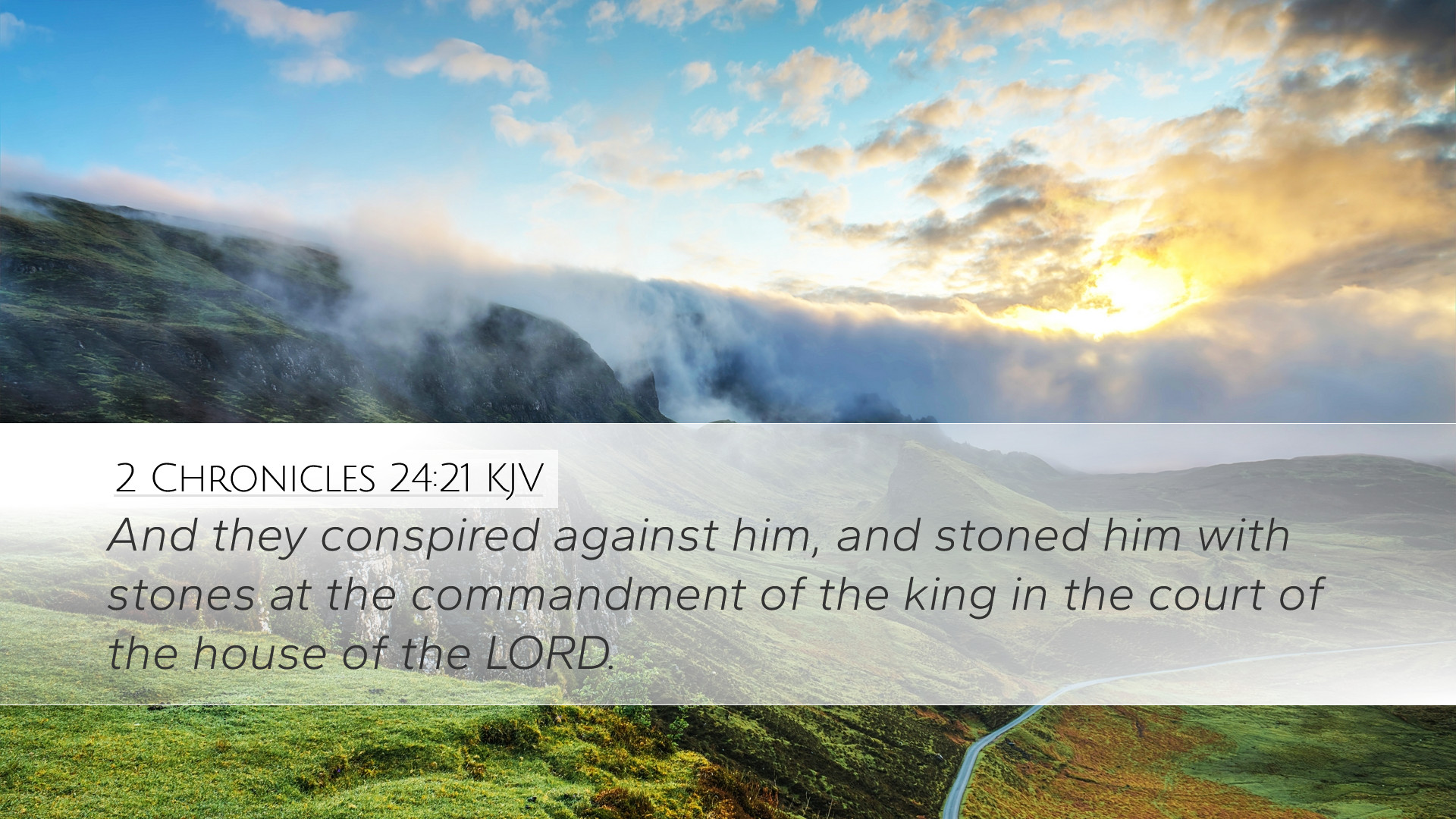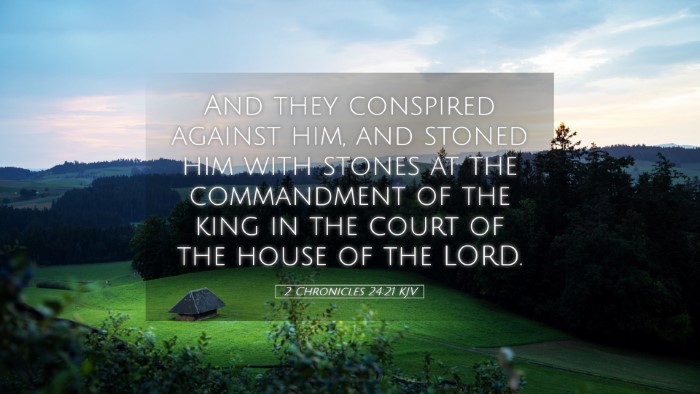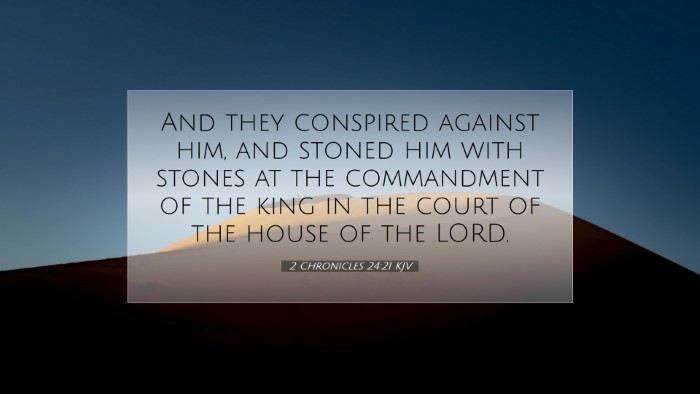Commentary on 2 Chronicles 24:21
2 Chronicles 24:21 states, "But they conspired against him, and stoned him with stones at the commandment of the king in the court of the house of the Lord." This verse provides a poignant glimpse into the devastating consequences of turning away from God and the rejection of His messengers.
Contextual Overview
This passage occurs during the reign of King Joash, who, after being raised in the temple, initially led a revival in Judah. However, over time, he strayed from the path of righteousness under the influence of his advisers. This section in Chronicles serves to highlight the tragic decline from reform to rejection, especially concerning the prophet Zechariah.
Insights from Commentaries
-
Matthew Henry: Matthew Henry poignantly notes the irony of the situation—Zachariah, who was a faithful servant of the Lord, met his end in the very place where God's presence was meant to dwell. His martyrdom signifies the extreme consequences of prevailing evil within a kingdom that was seen as God’s chosen nation.
-
Albert Barnes: Barnes emphasizes the gravity of Joash's decision. He points out that this act of violence reflects a larger pattern of human rebellion against divine authority. The rejection of God’s messengers often leads to dire consequences, and Joash’s listeners were complicit in this grand sin.
-
Adam Clarke: Clarke provides historical context by detailing Zechariah’s lineage and his rightful place among the prophets. He notes that the people’s rejection of him signals a broader spiritual rot. Clarke also highlights the deep irony that a king who was himself saved by divine providence would turn against a prophet of God.
Theological Implications
This verse raises significant theological questions regarding the sovereignty of God and the human response to divine intervention. The act of stoning Zechariah signifies a rejection of God's message and warns of the eventual consequences when a nation turns away from Him.
Furthermore, it serves as a reminder to leaders and followers alike about the vital importance of faithfulness and adherence to God's commands. The actions of Joash flip-flop from a once noble purpose to betrayal, illustrating the vulnerability of even the most seemingly devout rulers.
Lessons for Pastors and Theologians
-
Faithfulness over Popularity: Joash's eventual abandonment of Zechariah demonstrates the danger of seeking popularity or appeasement over faithfulness to God’s word.
-
The Cost of Disobedience: The narrative illustrates that the consequences of disobedience can lead not just to personal ruin, but to a national crisis in faith.
-
Encouragement for Prophetic Ministry: This story reveals the struggles that prophets face, providing a stark reminder for pastors to remain steadfast in proclaiming God’s truth, regardless of external pressures.
Conclusion
2 Chronicles 24:21 serves as a critical lesson in the narrative of Israel’s history and its relationship with God. The stoning of Zechariah at the command of King Joash epitomizes the folly of rejecting divine wisdom and reveals the tragic outcomes of spiritual decay. As ministers, scholars, and students of theology ponder this text, it offers an opportunity to reflect on the imperatives of faithfulness, integrity, and commitment to God amidst a culture increasingly hostile to His truth.


